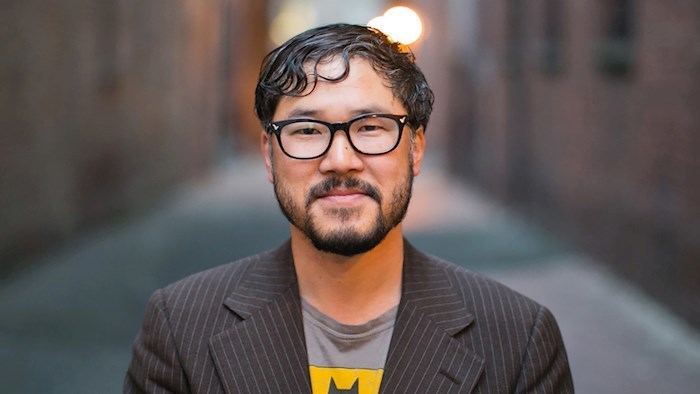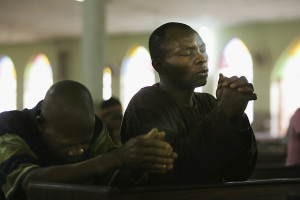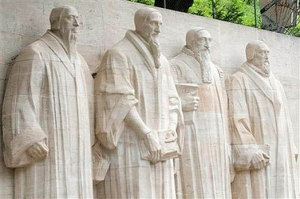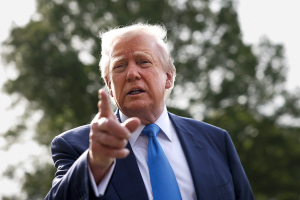Trump calling coronavirus 'Chinese virus' 'instigates blame, hatred against Asians': Eugene Cho
NPR, CNN, MSNBC other media outlets first to use terms referring to China

Evangelical leader Eugene Cho has warned against using language that “instigates blame, racism, and hatred against Asians” when referring to the novel coronavirus, as many “Asians are afraid of public backlash” in wake of the outbreak.
On Monday, President Donald Trump referred to the coronavirus, which originated in Wuhan, China, as the “the Chinese Virus” in a post on Twitter.
During Tuesday's White House press briefing, a reporter asked the president if he was going to continue to use that wording after "China and others have criticized you for using the phrase 'Chinese virus.'"
The president responded by saying that China was pushing debunked propaganda that the U.S. military inflicted the virus on China, and he was making clear that its source was not the U.S.
"And rather than having an argument, I said I have to call it where it came from; it did come from China. So I think it’s a very accurate term. But no, I didn’t appreciate the fact that China was saying that our military gave it to them. Our military did not give it to anybody," the president added.
Trump also hit back against the assertion that the phrase "creates a stigma."
"No, I don’t think so. No, I think saying that our military gave it to them creates a stigma," the president said.
In response to Trump's tweet, Eugene Cho, a former pastor of a Seattle church and head of the Christian nonprofit group Bread for the World, suggested that using such language to refer to the coronavirus could be dangerous.
“Mr. President: This is not acceptable,” he wrote in his tweet. “Calling it the 'Chinese virus' only instigates blame, racism, and hatred against Asians — here and abroad. We need leadership that speaks clearly against racism; Leadership that brings the nation and world together. Not further divides.”
Cho, who was born in Seoul, South Korea, later tweeted that while he cannot speak for “all Asians, I'm navigating not just the health crisis...but the reality of racism and anger against Asians.”
“Many Asians are afraid of public backlash-verbal & physical,” he wrote. “I know of friends incl. one of my staff that experienced verbal, racist assault. So in light of current climate, we need Pres. Trump to do better. I continue to pray for him...and for humble, honest, brave leadership.”
Several lawmakers on both sides of the aisle and news reporters have also referred to the virus by the location it derived from, using terms such as the “Wuhan virus,” “Chinese coronavirus,” and “foreign virus.”
CNN referred to the coronavirus as the "Wuhan virus" in January, and The Wall Street Journal, which has since changed its headline, referred to coronavirus as the Wuhan virus around the same time, The Daily Wire reported. Similarly, NPR has described it as the "Wuhan coronavirus" in its news reports.
CNN opinion host Don Lemon referred to the first U.S. case of COVID-19 as the "Chinese coronavirus." Similarly, Dr. Sanjay Gupta, CNN's chief medical correspondent, said the entire world was frightened of the "Chinese virus."
MSNBC "Morning Joe" co-host, Mika Brzezinski, also described the virus as the "Chinese coronavirus."
Additionally, several Asian-based news organizations previously referred to the virus by a similar name, “Wuhan pneumonia.”
There are many pandemics, viruses and diseases that are identified by the name of a specific location. Some of these include Lyme disease, named after Lyme, Connecticut; Ebola, named after the Ebola River in Zaire; Omsk fever, named after its discovery in Omsk, Russia; the Middle East Respiratory Syndrome; and German measles (rubella virus), which infects around 100,000 people worldwide every year, just to name a few.
Cho is not the only well-known Christian to call for sensitivity when referring to the virus.
In a Facebook post last week, Asian American NBA player Jeremy Lin decried “news headlines of racism, xenophobia, attacks on Asians and decaying trust towards people.”
“All heartbreaking and the opposite of God's kingdom,” he said. “Talk less out of hate, more out of empathy. ...There are many examples of racism but also countless examples of hope.”
In February, the World Health Organization concluded the COVID-19 virus first appeared in the city of Wuhan, adding that “early cases identified in Wuhan are believed to be have acquired infection from a zoonotic source as many reported visiting or working in the Huanan Wholesale Seafood Market.”
Still, the WHO warned against using “harmful stereotypes” and said it deliberately chose COVID-19 as the official name to avoid such stigmatization.
Meanwhile, Chinese officials have continued to push debunked propaganda that the U.S. Army introduced the virus to Wuhan, prompting U.S. Secretary of State Mike Pompeo to address the misinformation in a phone call with a top Chinese diplomat on Monday.
“Secretary Pompeo conveyed strong U.S. objections to PRC efforts to shift blame for COVID-19 to the United States,” Morgan Ortagus, State Department spokeswoman, said in a statement about Pompeo’s call with Yang Jiechi, director of the Office of Foreign Affairs of the Communist Party of China.
“The Secretary stressed that this is not the time to spread disinformation and outlandish rumors, but rather a time for all nations to come together to fight this common threat,” Ortagus said.
To slow the spread of the coronavirus within the U.S., the federal government recommended on Monday that Americans refrain from holding gatherings of 10 or more people, stop all discretionary travel and avoid eating in bars and restaurants for the next 15 days.
Cho, author of Thou Shall Not Be a Jerk: A Christian’s Guide to Engaging Politics, recently shared with The Christian Post how Christians can demonstrate compassion and charity amid the “contentious” political rhetoric prevalent today.
“It’s important to remember that the Great Commandment that encapsulates all laws is to love God and love people,” he said. “To love people, we have to acknowledge it doesn’t mean we’re called to just love those who think like me and vote like me. Jesus gave us the beatitudes to be a guiding light for us. There’s a difference between being political and partisan. Sometimes, we become so enamored with a political party that we become fundamentalistic in our views, forgetting that parties change over time.
“We need to have a commitment to listen and make sure we’re not surrounding ourselves with a bubble or echo chamber,” he added. “That means breaking bread with people we disagree with. It may not change our views, but it helps us humanize those who disagree with us on passionate issues.”





























